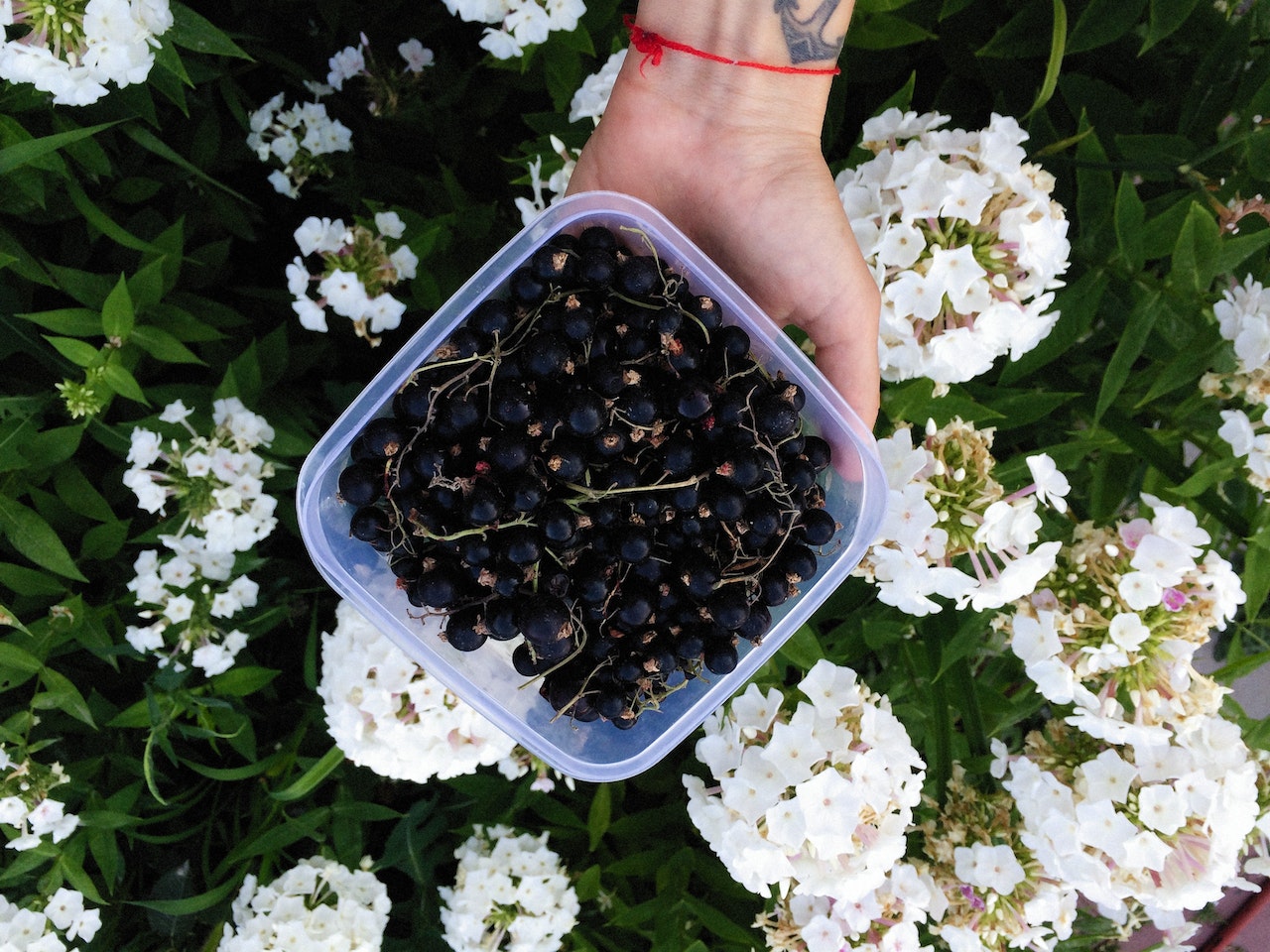Athletes Don't Value Sleep Enough
Here’s a question for you. Which of these would boost your ego the most?
- Completed a tough training session, but had to stay up late to do some other things that you put off so you could squeeze in the training.
- Cut a training session short, but get your normal night's sleep.
For most of us, it's the first answer. It proves we're the sort of person who can push through and do the hard work and not let a little thing like lack of sleep get in the way.
Now ask yourself a slightly different question.
Which of these would make you feel better?
Not stroke your ego, or look better on Strava, just would make you feel better?
When you set aside the need to prove something, the answer is probably the second one.
So why is that?
Why Do We Need Sleep?
Sleep is more than just a luxury; it's a cornerstone of athletic recovery (remember the "Eat. Sleep. Workout. Repeat." mantra in our Guide to Athlete Recovery) .
It's the time when your body repairs muscles, replenishes energy stores, and strengthens your immune system. And when you're well-rested, you're more focused, motivated, and ready to take on the challenges of your next workout.
Sleep is Your Performance Hack, Not a Luxury
Sleep isn't just "necessary". It's an easy, cheap, and potent performance-enhancing "tool".
Sleep Helps Performance
The link between sleep and athletic performance is undeniable. Athletes who prioritize sleep tend to experience
- faster recovery
- improved endurance
- enhanced mood and cognitive function
Studies have shown sleep improves everything from reaction times to sprint times, tennis serve accuracy, swim turns, kick stroke efficiency, and increased free throw and 3-point accuracy.1
Ignoring Sleep Can Hurt
But in the modern world, the value of a good night of sleep is often underappreciated. As work and life demands go up, the time we spend sleeping tends to go down. Paired with the accessibility of caffeine, many people find themselves running on a temporary energy source to get through days.
A lack of sleep can negatively influence the normal functioning of our bodies. This is what can happen if you don't get enough sleep:
- Muscle Repair and Growth - during sleep, your body releases human growth hormone (HGH) that help repair and rebuild the tiny tears that occur in muscles during exercise.
- Energy Levels and Motivation - sleep is crucial for replenishing your body's energy stores. When you're well-rested, you'll feel more energized and motivated to take on the challenges of your workouts.
- Hormone Regulation - sleep is when your body produces hormones like cortisol, which helps regulate mood, stress levels and inflammation.
- Cognitive Function - getting enough sleep helps learning by consolidating new skills learned from training. It also helps with judgment and decision-making, including reaction time - essential when the pressure comes on in competition.
- Metabolism - making you more susceptibile to weight gain
- Immune Function - when you're well-rested, your immune system is better equipped to fight off infections and recover from injuries. The harder you push your body, the more chance you have of picking up an illness.
And when we through the demands of training on top of everything else, these things can build up over the weeks and months. In the worst case, they may eventually evolve from just "feeling tired and unmotivated" into chronic inflammation and diseases.
Sleep = Recovery and Restoration
Sleep cycles consist of wakefulness, rapid eye movement (REM), and non-rapid eye movement (N-REM) sleep.
When we sleep, our bodies go through a range of processes. For athletes, the most important are those that restore energy supplies and repair and rebuild muscle.
N-REM sleep
This is often considered the "physical recovery" stage. During deep sleep, blood flow to muscles increases, and the body releases Growth Hormone (GH), which is essential for:
muscle repair and growth, replenishing energy stores and reducing inflammation and delayed onset muscle soreness (DOMS).
It goes through three stages:
-
Stage N1 (Light Sleep / Drowsiness)
This is the transition stage from wakefulness to sleep. Your brain waves and heart rate begin to slow down, and your muscles start to relax. -
Stage N2 (Deeper Light Sleep)
This is still light sleep, but it's deeper than N1. This stage makes up the largest percentage of your total sleep (around 45-55%), lasting about 10-25 minutes in the first cycle and lengthening with successive cycles. -
Stage N3 (Deep Sleep / Slow-Wave Sleep - SWS)
This is the deepest and most restorative stage of N-REM sleep. It lasts 20-40 minutes per cycle and decreases in duration as the night progresses. This is the stage where the body undergoes significant physical repair and restoration. Growth hormone is released, tissues are repaired and regrown, muscles are built, and the immune system is strengthened.3
REM Sleep
While N-REM sleep focuses on the body, REM sleep is critical for the brain. This is the stage where most dreaming occurs. Think of it as the brain's "reset" and "optimization" phase. Without enough REM sleep, an athlete might struggle with learning new techniques, staying focused and making quick decisions under pressure.
Sleep Your Way Past Your Training Plateaus
Hard, consistent training paired with inadequate recovery time can lead to plateauing. If you feel you are doing everything right with exercise and nutrition, consider your sleep and recovery habits. Without adequate time to recover, our bodies are constantly in a state of stress.
How Much Sleep Do Athletes Need?
Just like every athlete has unique training needs, so too do they have unique sleep requirements. While there's no one-size-fits-all answer, most experts agree that athletes need more sleep than sedentary individuals.
Individual Variations
Several factors can influence how much sleep an athlete needs, including:
- Training Intensity: Athletes who engage in intense workouts often require more sleep to recover and perform optimally.
- Age: Younger athletes may need more sleep than older athletes, as their bodies are still growing and developing.
- Genetics: Some people naturally require more or less sleep than others.
- Stress Levels: High levels of stress can disrupt sleep patterns and increase the need for rest.
Specific Needs for Different Sports
Not all sports demand the same type of recovery.
Endurance athletes, like marathon runners or cyclists, need more sleep for muscle repair, energy restoration, mental clarity, and maintaining long-term stamina. While deep sleep is also important for endurance athletes, REM sleep—which aids in brain recovery, learning, and emotional regulation—can be particularly beneficial. 4
On the other hand, strength-based athletes, such as weightlifters or sprinters, might focus more on muscle growth and power, which means deep sleep (N-REM Stage 3 mentioned above).5
The intensity and type of sport you engage in can influence just how much sleep you need. Pay attention to your body and adjust your sleep schedule accordingly.

Recommended Sleep Duration
As we said above, there's no "one" right amount of sleep that will work for everyone.
That said, a general recommendation for non-athletes is to sleep 7-9 hours per night.
Athletes should aim for 9-10 hours of sleep because of high training demands and the stress it puts on the body.
But as we know, in real life, it can be tough to meet recommendations! It's all too easy for schedules, pain and injuries, diet, social life, technology and travel to get in the way.
Listening to your body and adjusting your sleep schedule is important. If you're feeling tired, unmotivated or struggling to perform at your best, it may be a sign that you need more sleep.
The Connection Between Sleep and Injury Risk
One final point here, studies have shown that athletes who are sleep-deprived are more prone to injuries.6 This is probably because that lack of sleep impairs cognitive function, coordination, and reaction time, increasing the risk of accidents and injuries.
For the elite athlete, sleep deprivation can increase injury risk, decrease sport-specific performance, and hinder concentration.
Strategies for Sleep
Improving sleep can be approached from a nutrition standpoint and through reassessing nighttime habits. Though supplements can enhance our ability to fall and stay asleep, they do not replace poor sleep hygiene.
Although starting good sleep habits is not as easy as telling yourself to sleep at 10 pm, there are strategies to help the transition feel smoother.
Creating a sleep routine will help prime your body for sleep. Consistently performing these tasks allows the body to register that it is soon time to sleep.
An example may look like this:
- Create a Sleep-Conducive Environment: Ensure your bedroom is dark, quiet, and cool. Invest in comfortable bedding and create a relaxing sleep routine.
- Establish a Consistent Sleep Schedule: Go to bed and wake up at the same time each day, even on weekends. This helps regulate your body's internal clock.
- Limit Screen Time Before Bed: The blue light emitted by electronic devices can interfere with melatonin, the hormone that controls sleep, so aim to avoid screens for at least an hour before bed.
- Manage Stress: Practice stress-reduction techniques like meditation, deep breathing, or yoga to improve sleep quality.
- Avoid Eating and Drinking: Try to avoid eating 3 hours before bed and drinking 2 hours before bed.
- Avoid Stimulants and Alcohol: Limit caffeine and alcohol intake, especially close to bedtime, as they can disrupt sleep patterns.
Keeping rooms dim and minimizing bright light exposure in the evening will also benefit sleep quality.
Practical Sleep Tips for Athletes
- Practical Tip: To help regulate your hormones, aim to keep a consistent sleep schedule, even on weekends. If you find yourself feeling overly fatigued or notice a drop in performance, consider adjusting your training intensity and ensuring you’re getting enough high-quality sleep each night.
- Practical Tip: Experiment with your sleep environment by making small adjustments, like lowering the room temperature or trying a sleep mask. Track your sleep for a week using a wearable device or app, and use the insights to fine-tune your routine. Also, consider adding a short nap to your day if you’re feeling fatigued, but be mindful of timing to avoid disrupting your nighttime sleep.
- Practical Tip: To determine your optimal sleep duration, experiment by adding 30-60 minutes of sleep to your nightly routine for a week and observe how your body responds. If you wake up feeling more refreshed and notice improvements in your performance, you’ve likely found the right balance.
How Does Technology Affect Sleep?
With the ever-growing popularity of technology and social media, athletes may unknowingly be hindering their sleep with late-night screen time. The light from phone and computer screens can cause disruptions in circadian rhythm, leading to longer sleep latency and poor sleep quality.
Technology does have a plus-side though. While technology can disrupt sleep, it can also be used to improve it. Many smartwatches and apps track sleep data and offer personalized recommendations (the most common one will likely be "you need to go to bed earlier!).
Additionally, using blue light-blocking glasses or night mode on your devices can help reduce the impact of screen light on your sleep.
Caffeine
We've said elsewhere that caffeine is the best legal performance-enhancing drug, but it needs to be used with care. Minimizing caffeine in the afternoon will help avoid sleep disruptions. The half-life of caffeine is about 3-7 hours.7 This means if you take caffeine at 1 pm, half of the caffeine may still be circulating at 8 pm.
The remaining caffeine is likely to be present at the time you go to sleep. Although the feeling of alertness will wear off by nighttime, caffeine may still hinder sleep quality and increase sleep disruptions.
Using 2before’s caffeine-free blackcurrant pre workout for afternoon and evening exercise can help energize your training without compromising sleep. Blackcurrants also enhance antioxidant activity, which supports the recovery process following workouts. Simply take one sachet about one hour before training.
Finding the Perfect Sleep Routine
The pefect sleep routine is the one that works best for you.
As we've said a few times, this will be slightly different for everyone, and will change depending on how much training you're doing, along with travel and anything else going on in your life.
Optimizing your sleep routine may be the missing piece to your training regime.
Start by creating a consistent sleep schedule, optimizing your sleep environment, and incorporating naps when needed. Pay attention to your body's signals and adjust your routine to ensure you're getting the restorative sleep you need.
When it comes to sleep, put your ego aside - your PRs will thank you!
Remember that getting enough rest and recovery are essential for achieving training goals and seeing performance improvements. Sometimes this means putting your ego aside, but try it - your PRs will thank you!
- Vitale KC, Owens R, Hopkins SR, Malhotra A. Sleep Hygiene for Optimizing Recovery in Athletes: Review and Recommendations. Int J Sports Med. 2019 Aug;40(8):535-543. doi: 10.1055/a-0905-3103. Epub 2019 Jul 9. PMID: 31288293; PMCID: PMC6988893.
- Scammell TE. Overview of sleep: the neurologic processes of the sleep-wake cycle. J Clin Psychiatry. 2015;76(5):e13. doi:10.4088/JCP.14046tx1c
- Vitale KC, Owens R, Hopkins SR, Malhotra A. Sleep Hygiene for Optimizing Recovery in Athletes: Review and Recommendations. Int J Sports Med. 2019;40(8):535-543. doi:10.1055/a-0905-3103.
- Dattilo, M. et al. (2011). Sleep and muscle recovery: Endocrinological and molecular basis for a new and promising hypothesis. Medical Hypotheses, 77(2), 220-222.
- Reilly, T., & Edwards, B. (2007). Altered sleep–wake cycles and physical performance in athletes. Physiology & Behavior, 90(2-3), 274-284.
- Hamlin Michael J. , Deuchrass Richard W. , Olsen Peter D. , Choukri Maria A. , Marshall Helen C. , Lizamore Catherine A. , Leong Claudia , Elliot Catherine A. The Effect of Sleep Quality and Quantity on Athlete's Health and Perceived Training Quality. Frontiers in Sports and Active Living. Vol. 3. 2021. DOI=10.3389/fspor.2021.705650
- Temple JL, Bernard C, Lipshultz SE, Czachor JD, Westphal JA, Mestre MA. The Safety of Ingested Caffeine: A Comprehensive Review. Front Psychiatry. 2017;8:80. Published 2017 May 26. doi:10.3389/fpsyt.2017.00080



